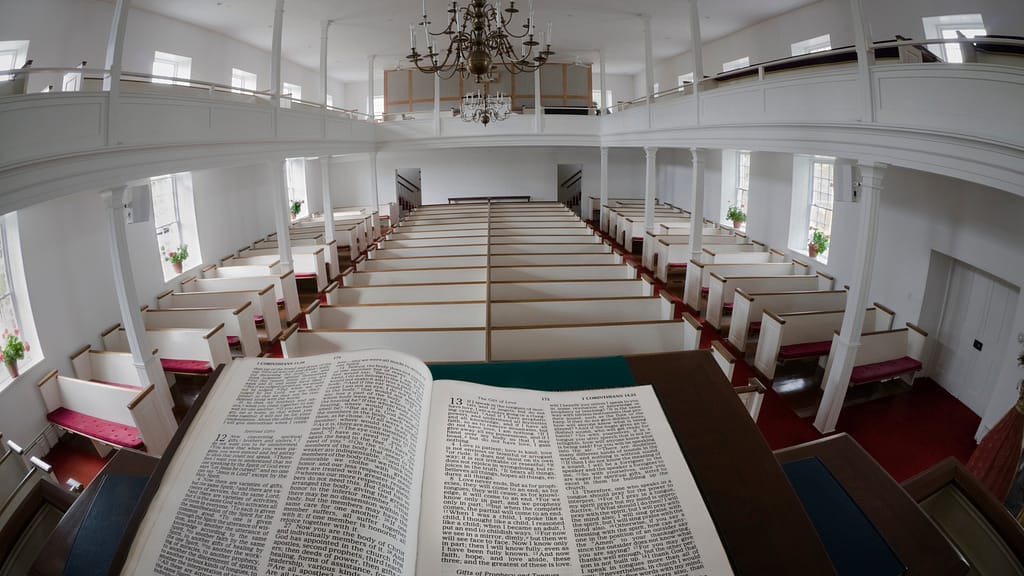Most Latino pastors share hope and joy and develop relationships naturally amidst community challenges.
However, many pastors confess to being physically tired, emotionally drained, and alone.
It was March 2020. The pandemic had just begun, and we started meeting with small groups of clergy to identify the greatest needs of Latino pastors in the U.S. Since we were in the first phase of the pandemic, we assumed pastors would focus responses to our questions on this once in a lifetime worldwide event. While the new challenges of COVID-19 were mentioned and were present in their faith community, as the conversation continued on, there was a focus on another need.
The pastors discussed many of their varied challenges, for example: how to disciple and develop new leaders, how to handle pastoral transitions, how to navigate the challenges of outreach to different cultures and generations, how to be inclusive of women in pastoral ministry, and how to manage organizational development, among others. However, as soon as one pastor said, “I feel tired” or “I feel alone,” most participants affirmed the same feeling. In each group, diverse in many aspects, the same need resurfaced: exhaustion mixed with loneliness.
This was not without reason. Latino pastors face great challenges every day, dealing with a plethora of issues. The first concern is the abysmal expectations of their job description. A pastor’s week can range from preparing a message for Sunday morning with the expectation of theological grounding that demonstrates graduate studies; visiting sick people in hospitals or homes; attending one, two or three emergencies at 3 a.m. from members of the community; reviewing the budget and executing planned fundraising activities; following up with a group of volunteers and training them to sustain “the organization,” or overseeing the social media campaign, among many others. It is like being “on-call” 24/7.
According to the work of Dr. Richard DeShon, a professor at Michigan State University and expert on analyzing job descriptions, cited by Dr. Bloom in the book Flourishing in Ministry, concluded: “…he has never encountered a job that is as complex, varied, and impactful as the work of a local church pastor.” Later in another study, he mentions, “It is almost inconceivable to imagine that a single person could be uniformly high on the sixty-four distinct knowledge, skills, abilities, and personal characteristics required for the role.” Sixty-four personal competencies were found in the job description requirements for a local pastor! Add to this the fact that some pastors are expected to fulfill this bi-vocationally, having another “full-time” or “part-time” job elsewhere to cover their personal expenses. This is an almost certain recipe for “burnout”.
In addition to the expectations associated with wearing “multiple hats,” the pastoral minister serving the Latino community in the U.S. embraces and celebrates all that the community is including its challenges of a lack of resources, life and immigration trauma, loneliness, divided families, racism, job and health care insecurity, language limitations, lack of access to higher education, among others. Moreover, the same pastoral individual may themselves face these challenges in his or her experience as a Latino. All these social factors lead to several emergency situations that cause the pastor to be a “fire extinguisher” receiving minor and major emotional “burns and inhalations” that accumulate over time. Therefore, the pastor is continually exposed to compassion fatigue.
In addition to these burnout factors, some pastors lack the deep relationships needed to weather the storms of ministry. The absence of the comfort necessary to nurture basic friendships, peer support, or ministry friends, prevents pastors from having a community with whom they can grow and be challenged. Why might this be? If the pastor is always busy or if the pastor can never stop, the less he or she will be able to cultivate close relationships. In addition, some pastors face “theological expectations” that could differentiate from their lived experiences. For example, the phrases, “You must always have joy…”, “We go from glory to glory…” may be interpreted that they are not allowed to feel unpleasant emotions. Interpretation of these “theological expectations”, or unrealistic measurements of “ministerial success” cause some pastors to isolate themselves and choose not to share their anxieties or experiences with friends out of an effort to protect and maintain both their personal theology and ministerial capability in the eyes of others. Another contributing factor could be denominational differences. For example: “A Pentecostal Latino pastor and a Lutheran Latino Pastor in a rural town …How many things could we have in common?” Other pastors have simply left their best friends in their home countries and the distance has taken its toll on the relationship. If factors such as the influence of individualistic culture and/or “unintentional segregation” are also considered in some denominations in the US, it further complicates these challenges, not to mention the experience of female pastors who are in the niche of the niche. If female pastors want to find support in the presence of peer pastors, who would be and how do they find them? If they want to build close relationships with male pastors additional scrutiny must be considered: “Will this close relationship look good?” These may be some of the contributing factors why, according to Pastor Care Inc., 70% of pastors report not having a close friend. The resulting emotional exhaustion contributes to the cycle of the lack of healthy authentic relationships.

The cyclical impact does not stop there. Given the variation of contributing factors and challenges, the immediate family of the pastor is also affected. The one place where pastors feel they can be transparent, at home, often makes family members the recipients of their full discharge of exhaustion and anxiety. Within the home, some pastors become irritable, and others become isolated and silent, unaware that they are unconsciously pouring out the challenges they are encountering outside the home onto their loved ones. The little time reserved for the family, if any, falls victim to lack of creativity, intentionality and full presence, because the pastor is simply exhausted and has nothing left to give to the people he or she loves most. The intimacy in their family is limited in all dimensions due to their lack of bandwidth and feelings of emptiness. The couple becomes distant, the children lose confidence, the family is disconnected, and the chain of risky and unhealthy behavior continues to increase.
Pastoral ministry does not have to be this way, nor should it. A culture developed around the personality of the pastor and has caused an unreasonable and unsustainable ecosystem. Jesus himself said: “Are you tired? Worn out? Burned out on religion? Come to me. Get away with me and you’ll recover your life. I’ll show you how to take a real rest. Walk with me and work with me—watch how I do it. Learn the unforced rhythms of grace. I won’t lay anything heavy or ill-fitting on you. Keep company with me and you’ll learn to live freely and lightly.” (Matthew 11:28-30, The Message). In light of all the challenges mentioned above, the Latino pastoral experience does not seem to fit within the proposal of Jesus. However, pastors are not inventing these feelings and anxieties. Therefore, revisiting what Jesus means by this invitational statement is necessary and can be great news!
With this information as the backdrop, Caminando Juntos was born; an initiative of Urban Strategies to improve the holistic wellbeing and interconnection among Latino pastors. Small groups of pastors with different backgrounds are formed to listen to each other, accompany each other, and grow in healthy and sustainable adjustments to sustain long term pastoral ministry. Holistic wellbeing experts with extensive experience in support of pastors are invited to assist in the transformation process. Funding for retreats, access to therapists, and interventions with pastoral wellbeing experts are provided to give one-on-one assistance in the development of new routines. In addition, the Caminando Juntos website provides materials, resources, and services to continue individual and collective development.
It is important that before continuing in the race of ministerial demands or seeking further knowledge on how to “do ministry”, pastors, denominational leaders, leaders of faith-based organizations, and all those who seek to pursue transformational mission, first pay attention to and prioritize how to be, including healthy and sustainable rhythms of life, helping them pay attention to their internal worlds. The intention is not to add another demand, but to learn to release. Jesus said it well:
“What good will it be for someone to gain the whole world, yet forfeit their soul? Or what can anyone give in exchange for their soul?
Matthew 16:26, NIV


